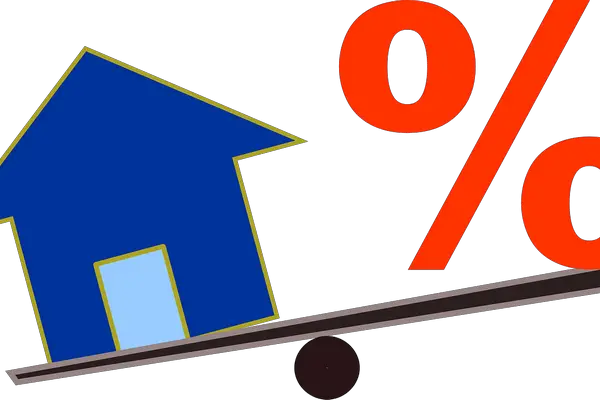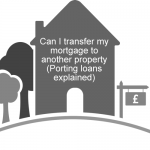
Whilst fixed rate mortgages are great for certainty of the amount you’ll pay each month, they aren’t so good if you change your mind part way though the fixed term period. So the question is, can you sell your house in fixed mortgage and avoid the early repayment charge? Let’s take a look at your options…
Can you sell your house in fixed mortgage & avoid early repayment charge? Yes you can sell your home if you’re in a fixed rate mortgage. But depending on the mortgage company and their repayment terms, you may suffer an early repayment charge or penalty. But there are ways to avoid the early repayment penalty, including to port your mortgage to your new home. Please read on for other options.
What is a fixed rate mortgage if you live in the UK?
A fixed-rate mortgage is a mortgage where your interest rate is guaranteed to stay the same for a set period of time. Having mortgage payments that are the same amount each month offers peace of mind. This will mean you know exactly how much you’ll need to repay each month during the fixed term period.
In comparison, a variable-rate mortgage (such as a tracker mortgage), the amount you pay each month can vary if the Bank of England change their rates.
Early repayment charge if selling house
If you have a fixed rate mortgage in place, chances are you’ll have an early repayment charge if you settle this mortgage before the fixed rate period ends.
This means that if you decide to move house during the fixed term mortgage, and as a result your fixed rate mortgage is paid-off, you will likely incur an early repayment charge. But before you do this, check your mortgage documentation first.
Usually early repayment charges are calculated as a percentage of your total mortgage. For example, if the ERC is 3% of your mortgage and your outstanding mortgage is £200,000, the penalty you’ll pay will be £6,000.
Sometimes the percentage of the early repayment charge reduces the longer you have the deal. You’ll find this information in your mortgage contract.
How can you avoid the early repayment charge on your fixed rate mortgage and still sell your house?
Whilst it’s not always possible to avoid the early repayment charge (ERC) on your fixed rate mortgage when you sell your house, there are ways you can. Let’s take a look at these.
Port your fixed rate mortgage to your new property to avoid an early repayment charge
Many mortgages are portable, but this solution does have it’s limitations. For example, if the new property is worth more than your current property meaning you need to borrow more, the port may not work. This is unless your current mortgage lender is happy to advance you more money in addition to your existing fixed rate mortgage.
Another reason why this may not work is if your circumstances have changed since you took out the original mortgage. Just because you’ve kept up with the payments on your fixed rate mortgage, this doesn’t necessarily mean the bank will be happy to port the mortgage to your new property. If their lending criteria has changed or your circumstances are different to when they originally lent to you, they may decline to port your mortgage.
Reduce the amount of the early repayment charge on your fixed rate mortgage
Whilst this option doesn’t avoid the early repayment charge completely, it may reduce it. As already explained, on certain fixed rate mortgages the early repayment charge reduces over time. What you may be able to do is to delay the completion on the sale of your house to a time when the early repayment penalty has just reduced to a lower percentage.
Check your mortgage contract to see what the early repayment charge terms say. It might be that a delay of a few weeks could take you into a lower percentage charge. Of course you don’t want this delay to affect the sale of your house or the onward purchase, but most people will understand a short delay.
An alternative approach to selling your house to avoid the early repayment charge on your fixed rate mortgager
What if I told you you could keep your mortgage in place, but you could ‘sell the right’ or what it is actually termed ‘sell the option‘ to buy your home at a future date. This is something we can organise for you using specialist solicitors in the UK. There are several benefits to this type of arrangement, which include the following:
- You don’t have to repayment your mortgage and therefore you’ll avoid the early repayment charge.
- Selling your house in this way is normally faster than selling it in the conventional way, as for one you won’t be in an upward conveyancing chain.
- Your property will be looked after and is no longer your responsibility once it’s been taken over.
- The amount you get for your house will be agreed upfront and written into the contract. As will the upfront payment or deposit you get at the outset.
There is a downside to this transaction, which is that the house your selling will for the medium term remain in your name. What this does mean is that you’ll have to pay the additional 3% stamp duty on the purchase of you new house. This type of arrangement is best explained in person, so if you are interested to find out more, please contact us here.
Porting a mortgage to a cheaper house
The problem with porting a mortgage to a cheaper house if you are downsizing is whether the mortgage port is too high for the value of the cheaper house.
Mortgage lenders have set criteria for how much they will lend against whats called a bricks and mortar valuation. What this means is that if the new house valued at say £250,000. Let’s also assume that your bank will only lend to a maximum loan to vale of say 75% for the product you have. That would mean the maximum mortgage they would lend in this case would be £187,500 (i.e. £250,000 x 75% = £187,500).
If however your current mortgage is say £225,000, this is too high. That’s not to say you can’t port this mortgage, but you would need to speak with your lender to see what the implications would be if you repaid £37,500 in this case (i.e. £225,000 – 187,500). They may or may not charge the early repayment charge on this reduction.
Certain lenders set an amount you can repay each year on a fixed rate mortgage. Often times this is 10% of the outstanding mortgage. If this is the case, you might be okay with a part of this repayment. Meaning you only pay the early repayment charge on the balance.
I hope this article has helped on can you sell your house while in a fixed mortgage
If this article has helped on ‘can you sell your house while in a fixed mortgage’ please share it on your favourite social media site. If you’d like to discuss your rental property or your property portfolio, please contact us.
Also, if you have any questions or you need help, please feel free to comment below too. Alternatively, if you need more help, please feel free to contact us on our contact us page here. Or join the discussion and ask your question in the property forum.




